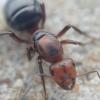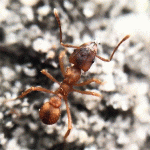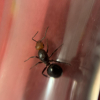A few months back (July), I caught two F. subsericea queens right around the same time. They layed eggs at the same time, brood developed at the same rate, etc. You get the idea. They layed their first batch of eggs at the same time, about five. The eggs turned to larvae, the larvae turned to pupae. They didn't have any other brood. At first I didn't think any thing of it. I assumed that they were waiting until they had workers to care for their eggs. The brood's pupal stage went by very slowly, almost a month and a half until the cocoons eclosed. They both had 5 workers. After this, nothing changed.They never laid the eggs that I thought they were waiting to lay. Another month or two later (now), still no brood. They are being fed plenty of sweets and protein. Does anyone know what's wrong with them?
Edited by Mettcollsuss, October 22 2017 - 9:56 AM.






















